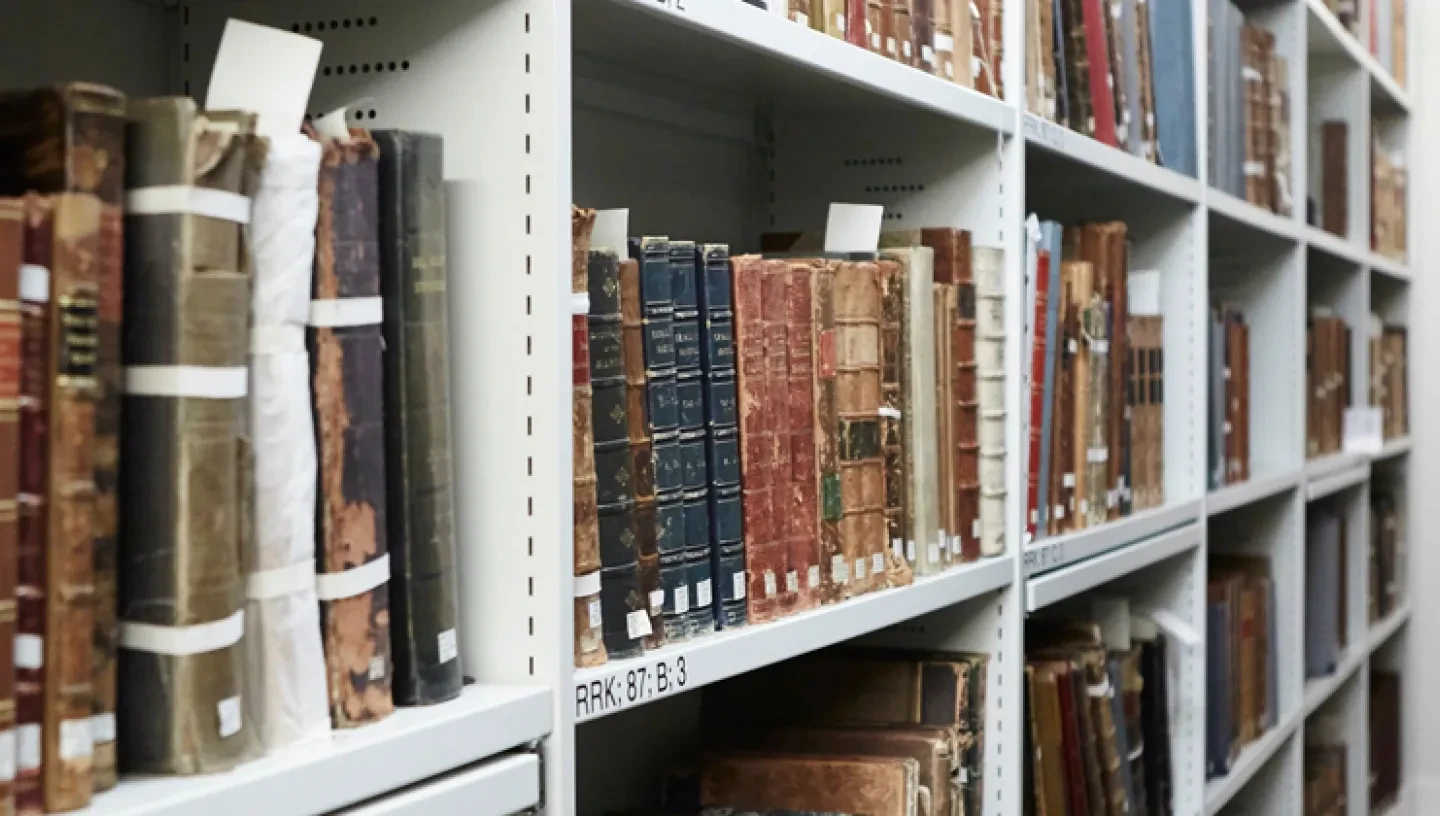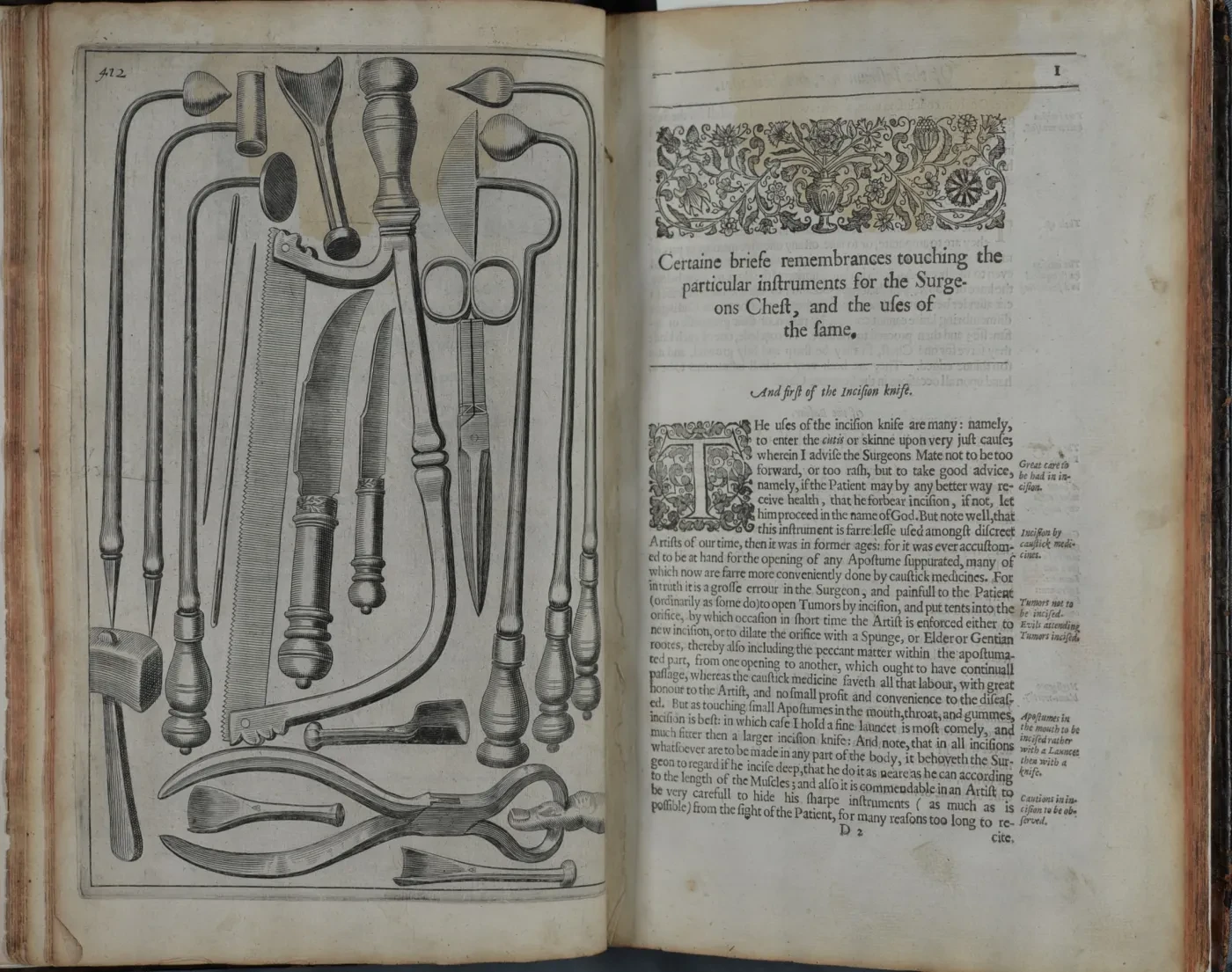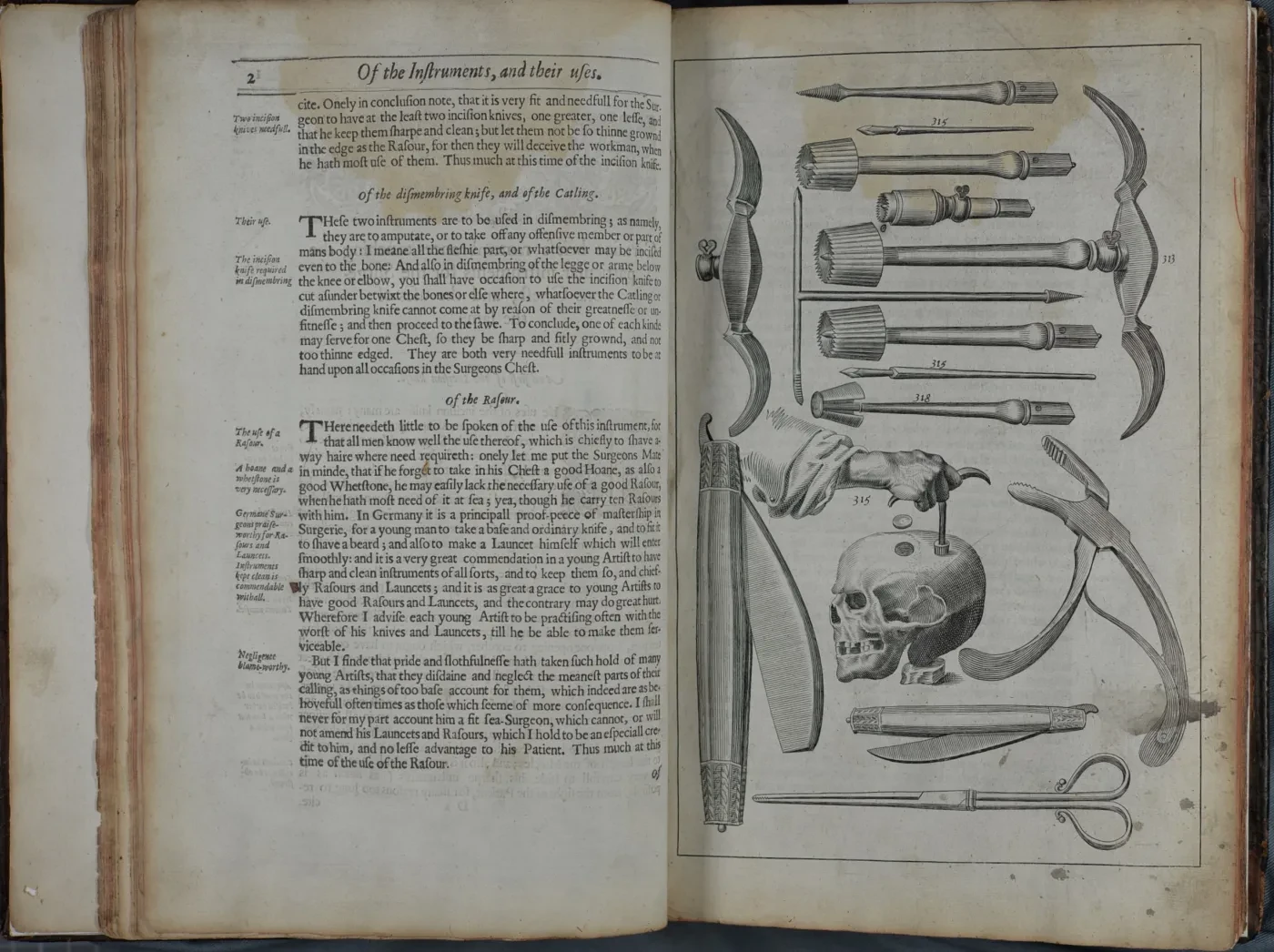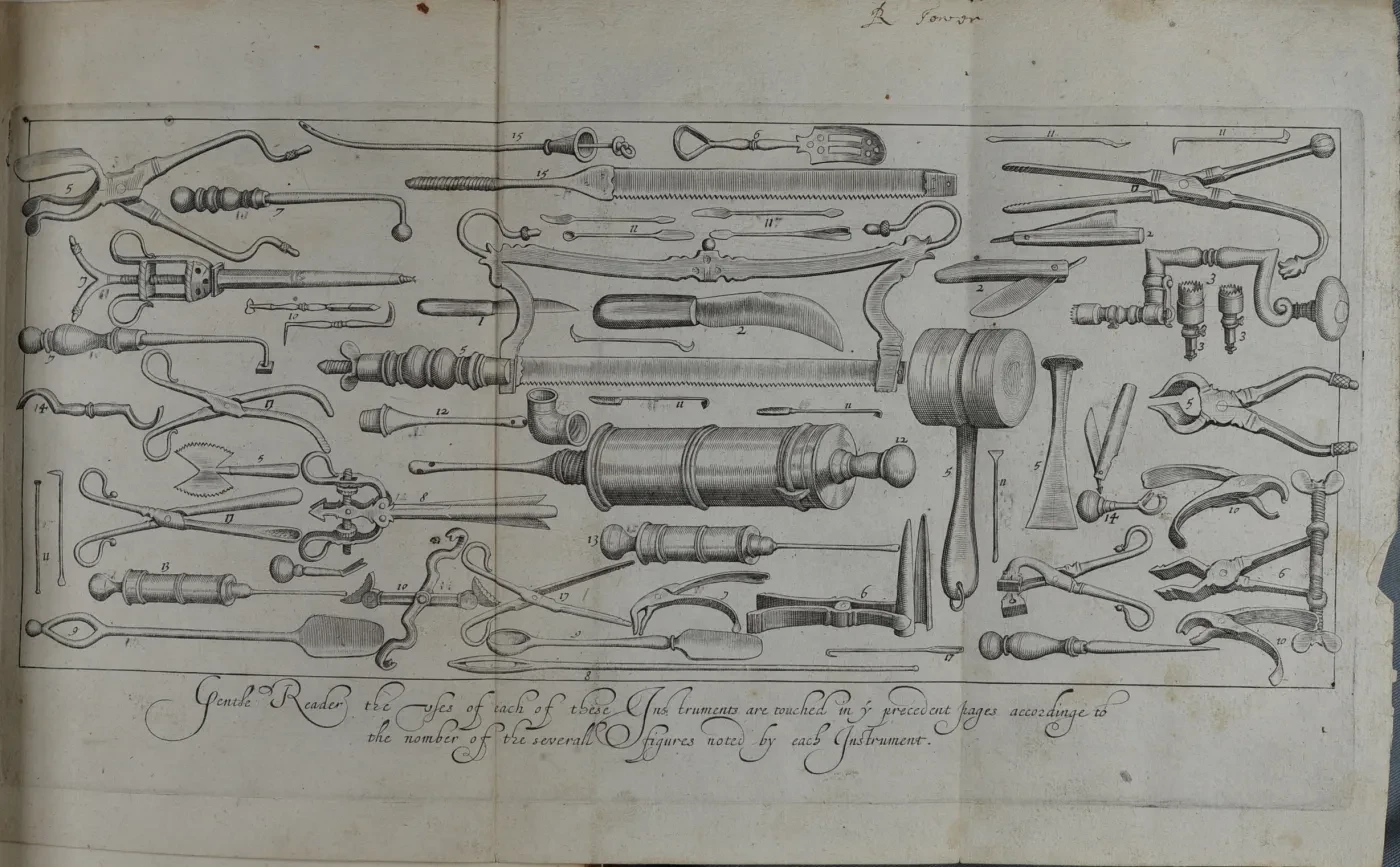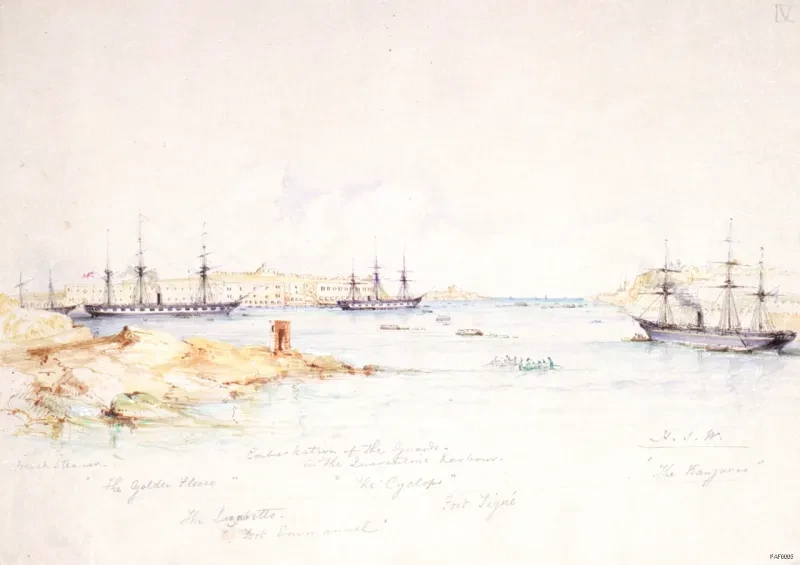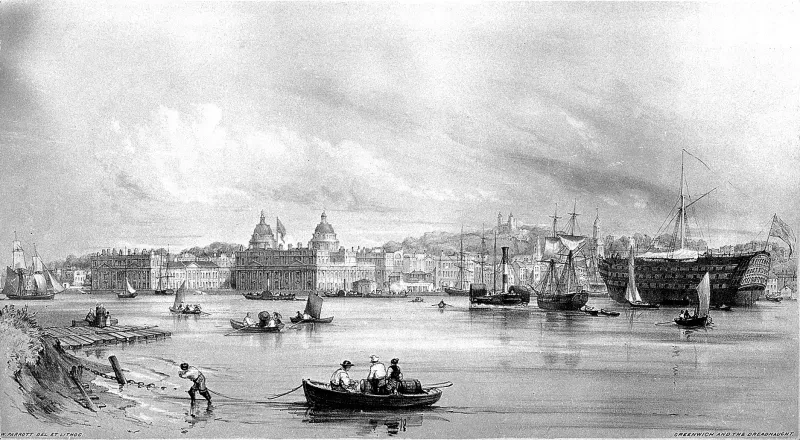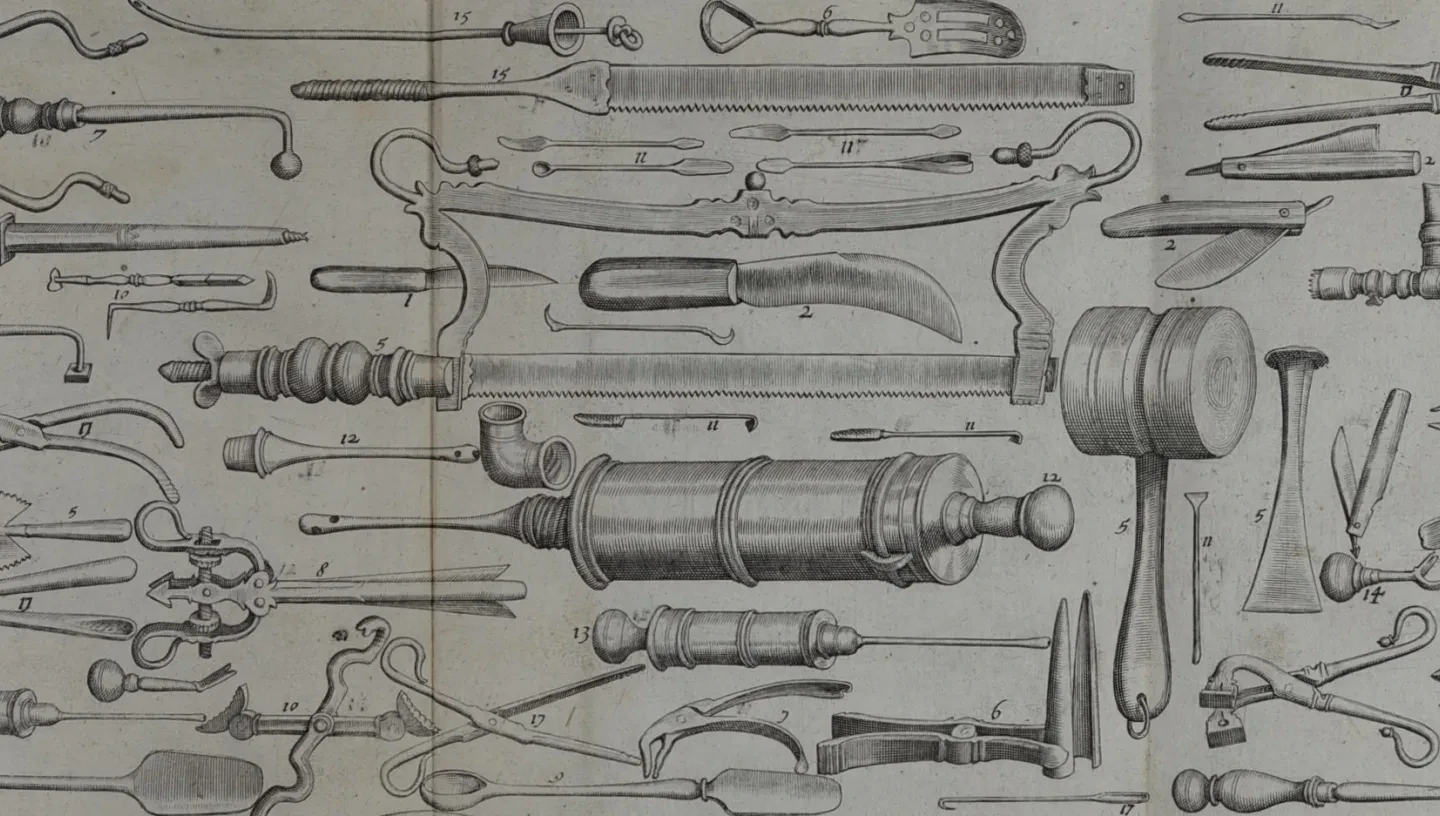
Learn more about Woodall's medical guide for the sea-going surgeon in the Caird Library collection
John Woodall's The surgeons mate
An earlier example is The surgeons mate by John Woodall. Born in around 1570 and having spent the early part of his career in various parts of Europe, Woodall returned to England in around 1601 and became a freeman of the Barber-Surgeons’ Company.
In 1613 Woodall was appointed as the first Surgeon-General of the East India Company, with his responsibilities including treating injured dockworkers at the company’s hospital at Blackwall and supplying ships with surgeons’ chests. He also served as a surgeon at St. Bartholomew’s Hospital.
Based on this work and his experiences he produced a guide for the sea-going surgeon, The surgeons mate, first published in 1617.
The library’s copy (PBP3639) is a later extended edition dating from 1639. In addition to the original text this edition includes some of Woodall’s later works on treating gunshot wounds, the plague, and gangrene. Woodall’s text includes detailed listings of the contents and proposed layout of a surgeon’s chest, as well as illustrations and descriptions of the various surgical instruments, medicines, treatments, and their uses.
Scurvy, a lamentable disease
Perhaps the most famous of diseases for seamen in the age of sail was scurvy which Woodall called a ‘lamentable disease, which hath so long and so fiercely assailed Saylers and Sea-men of all sorts more than Land-men’, and noted his frustration that other men with medical experience had not to that time written of their experiences with the disease. He wrote that the 'causes of this disease are so infinite and unsearchable, as they farre pass my capacity to search them all out’, but believed that other illnesses at sea stemmed from scurvy, writing:
there are few diseases at Sea happeneth to Sea-men, but the Scurvy hath a part in them, the Fluxes which happen chiefly proceed from the Scurvy, and I suppose if Sea-men could be preserved from that disease, few other diseases would indanger them.
Recognising the extent of the problem, he wrote about the symptoms, potential causes and treatments at some length.
A potential treatment?
As we now know, this disease is caused by vitamin C deficiency and sailors on long voyages with a lack of fresh food, particularly fruit and vegetables, were especially susceptible.
Woodall suggested various treatments for those suffering from the disease, including bloodletting, but also seems to have made the connection between the seaman’s diet and the disease, writing,
The chiefe cause where of is the continuance of salt diet, either fish or flesh, as porke and the like, which is not to be avoyded at sea, as I suppose by wit of man another cause is want of sufficient nourishing food.
He noted a pattern of seamen growing ill during long voyages before improving when they reached land, which he attributed to the fresh air and food. Later in his text he noted the value of citrus fruits in treating and preventing the disease:
the Chirurgion or his Mate must not faile to perswade the Governour or Purser in all places where they touch in the Indies and may have it, to provide themselves of juices of Oranges, limes, or lemons’ and that ‘The use of the juyce of Lemmons is a precious medicine and well tried, being sound and good, let it have the chiefe place, for it will deserve it.
He also noted how some surgeons gave juice to men daily as a preservative which he believed was a good idea providing they had a ready supply, otherwise it would be kept for the sick. He cautioned against allowing its use for other purposes ‘I dare not write how good a sauce it is at meat, least the chiefe in the ships waste it in the great Cabins to save vinegar.’
Woodall and others writing on scurvy had made a link between the sailor’s diet and scurvy, and the potential for using citrus to prevent or treat it. Unfortunately, such treatments and preventatives would not be widely adopted until the late eighteenth century when the Admiralty began ordering the issue of citrus juices to sailors.
You can find The surgeons mate (RMG reference: PBP3639) and many other books on medicine at sea in our library catalogue.
